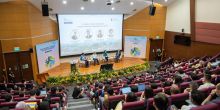President’s State of the University Address 2024: SMU2025 and Beyond
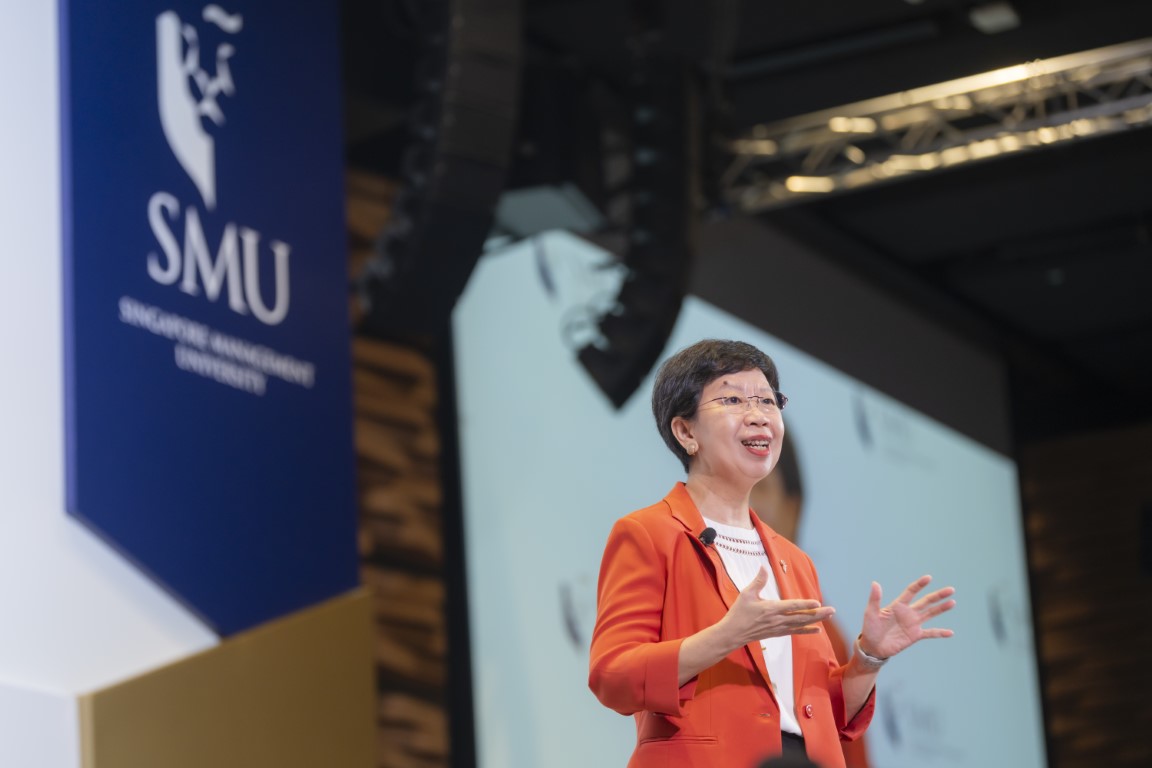
SMU Hall buzzed with anticipation as nearly 520 faculty, staff, students and guests gathered to hear Professor Lily Kong deliver her sixth SMU President’s State of the University Address on 20 September 2024.
The event kicked off with a vibrant performance by SMU samba band Samba Masala, fresh from their success at this year’s Samba Festival in Coburg.
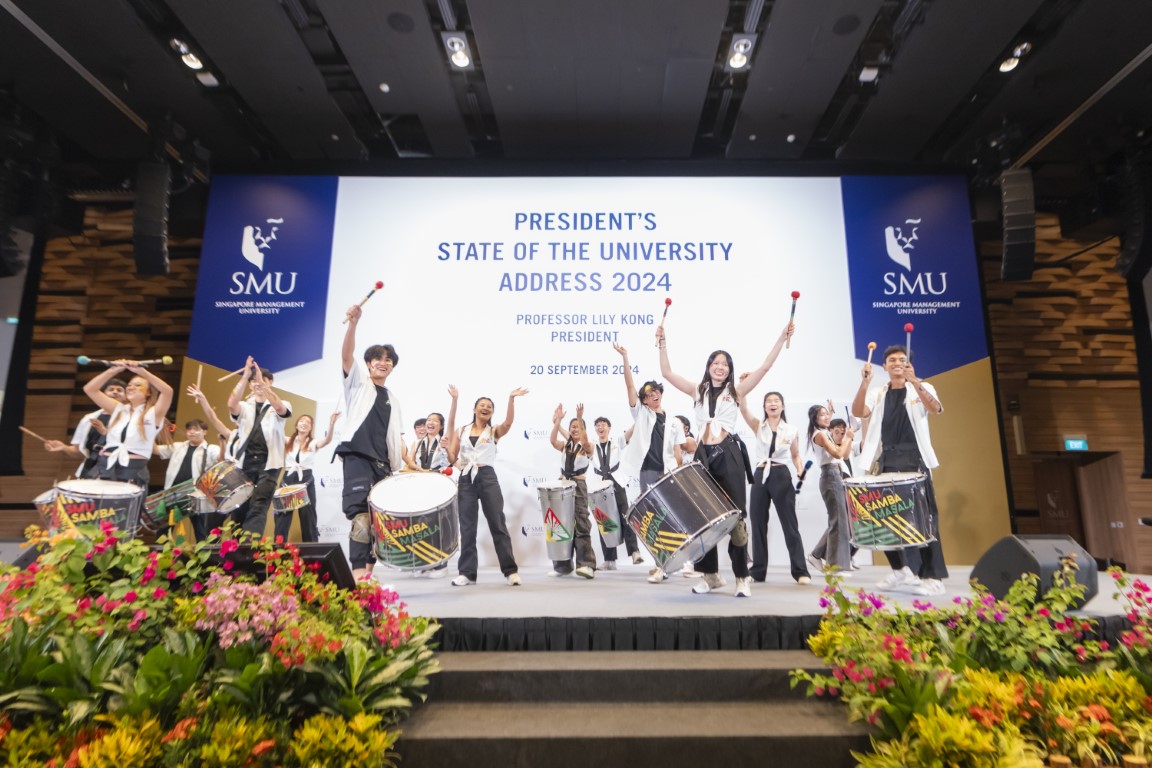
In her address, Professor Kong took a broader view, reflecting on SMU’s progress over the last five years since the launch of the SMU2025 strategic plan in 2020. She shared milestones in the University’s transformative education, cutting-edge research, and commitment to being an engaged city university.
Commitment to transformative education
SMU’s core objective is to nurture students into global citizens, change agents, and lifelong learners – a focus that has been evident through milestones such as the establishment of two new schools: the College of Integrative Studies and the College of Graduate Research Studies, which have helped to enhance interdisciplinary studies at the undergraduate and postgraduate levels since their formation in 2022.
Professor Kong also touched on initiatives such as the work-study degree programmes and Industry Practice Master, which has helped SMU make strides in bridging academia with industry. Besides this, SMU has made digital and sustainability literacy integral components of the undergraduate curriculum. The university also continues to ensure that students gain global exposure through partnerships such as the TREBLE programme with US and Danish partners.
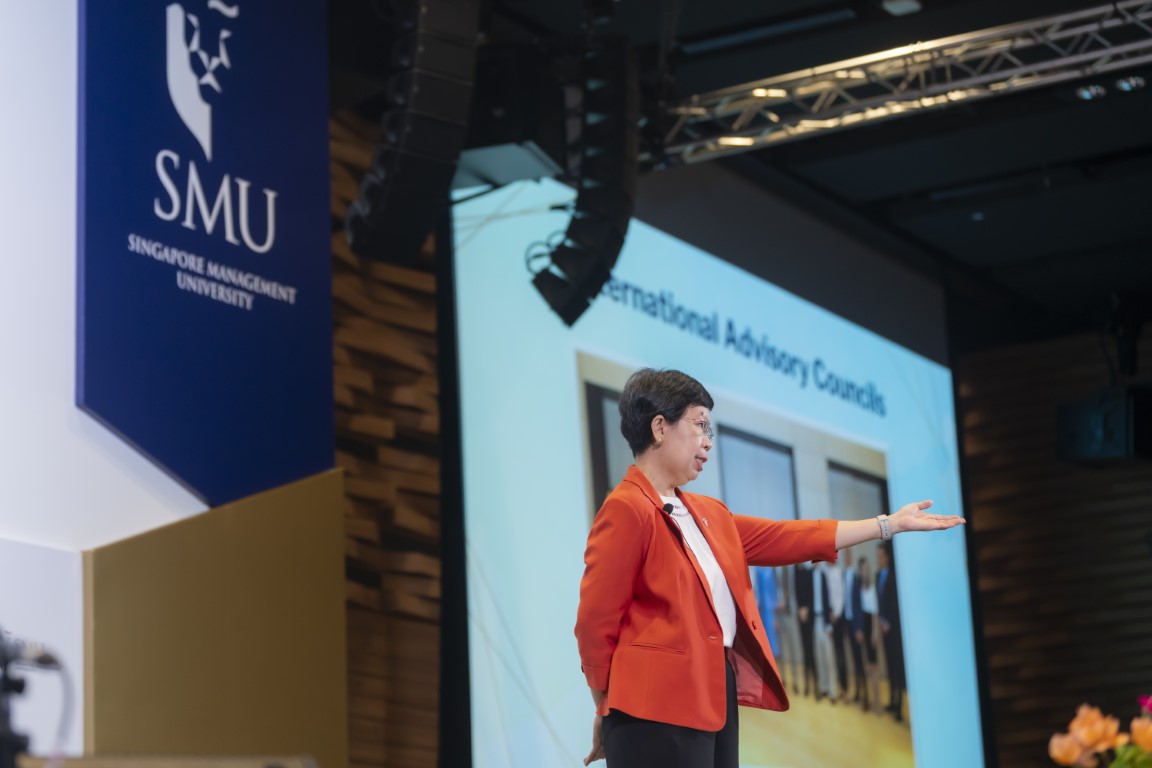
Prof Kong showed her appreciation to many teams and individuals for their achievements during her speech.
She commended faculty and staff for their commitment and achievements as SMU concludes this phase of its journey, and shared that moving forward, SMU plans to continue innovating in pedagogy, developing new academic programmes, and expanding co-curricular offerings in preparation for the next phase of its strategic plan.
Empowering and enabling cutting-edge research
Another cornerstone of the SMU2025 plan is research excellence, with an emphasis on both disciplinary and cross-disciplinary work in areas of strategic importance.
Since 2020, SMU has launched several new research centres, including ROSA (Research on Successful Ageing), the Singapore Green Finance Centre, RISE (Research for Intelligent Software Engineering), and the Urban Institute. These research centres focus on critical areas such as ageing, green finance, digital transformation, and urban development, simultaneously aligning with SMU’s broader themes of Digital Transformation, Sustainable Living, and Growth in Asia.
Supported by external grants, SMU’s research is further amplified by collaborations with both local and international institutions, with initiatives that include joint grant calls, MAKER workshops, and participation in research alliances like the Asia-Pacific Research Alliance on Law and Sustainability.
The University plans to implement a research impact framework that will evaluate academic and societal impacts, recognising faculty contributions across both dimensions. Furthermore, SMU will sharpen its focus on key research themes, which will lead to the establishment of new university-level research institutes, fostering collaboration and ensuring that SMU remains a leader in impactful research.
Remaining an engaged city university
SMU has continued to remain strong in its commitment to be an engaged city university, expanding its international presence and bolstering partnerships through Overseas Centres in Jakarta, Bangkok, and Ho Chi Minh City.
Locally, SMU continues to engage with the innovation ecosystem through initiatives like the Lee Kuan Yew Global Business Plan Competition and SMU Protégé Ventures.
The University’s Office of Industry Engagement is deepening research collaborations, particularly in urbanism and data analytics, further reinforcing SMU’s role in fostering impactful partnerships.
Long-term attentiveness to sustainability
One of SMU’s priorities in recent years has been sustainability, going as far as to introduce sustainability literacy into its curriculum. The University has achieved Green Mark certifications for its campus buildings, while also paying attention to contributing to sustainable living and working environments.
Internally, Project Optimus is transforming SMU’s digital services and systems, while Project Prime looks to redesign workspaces to promote collaboration and well-being. These efforts are creating a dynamic and sustainable working environment for SMU’s community.
SMU also plans to reduce teaching workloads from Academic Year 2026 and expand its faculty numbers, reflecting its dedication to supporting its faculty and meeting the growing demands of research and postgraduate education.
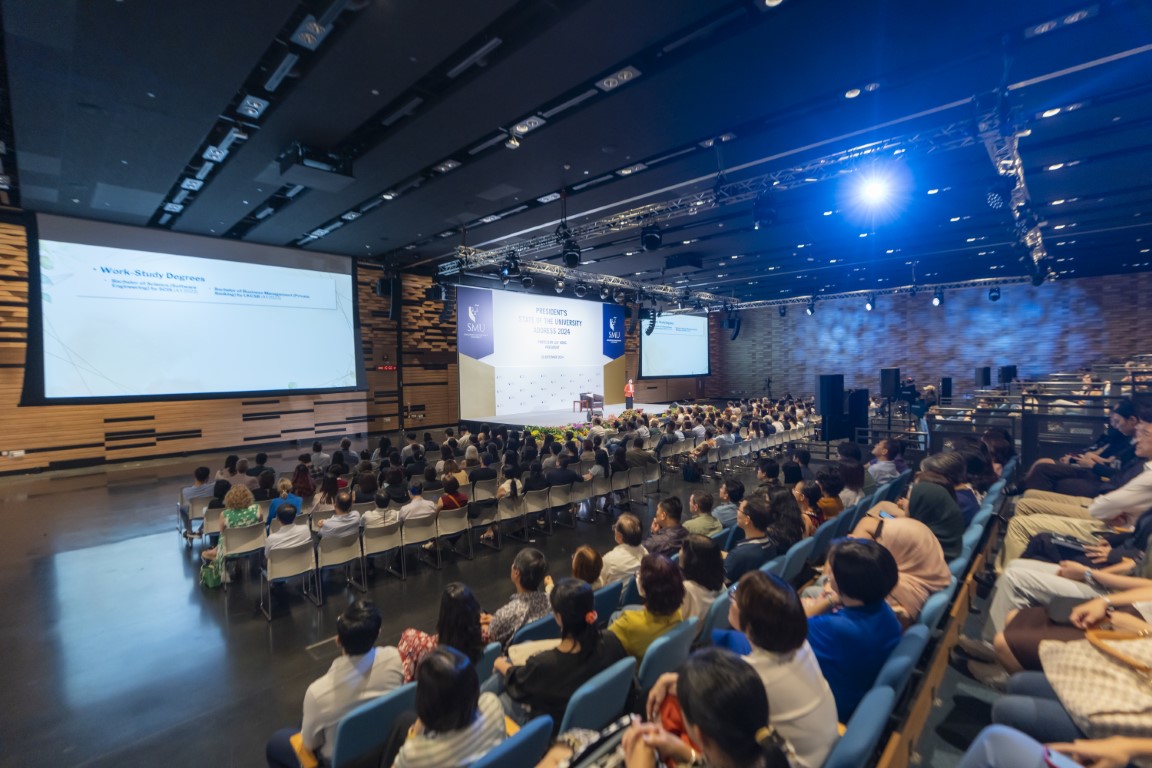
Looking to 2025 and beyond
As SMU approaches its Silver Jubilee in 2025, Professor Kong reflected on the collaborative spirit that has driven the University’s success. In her 2019 address, she called for a shift from "ego" to "eco," from "me" to "we," urging the SMU community to adopt a “founder mentality” of teamwork, trust, and commitment. This same spirit has been exemplified in the work of the SMU25 Taskforce and the successful launch of the University’s Overseas Centres.
Professor Kong encouraged the SMU community to embrace this next chapter with the same collaborative mindset, ensuring SMU’s continued success for years to come.
See also: President’s State of the University Address 2024: SMU2025 and Beyond | SMU Newsroom
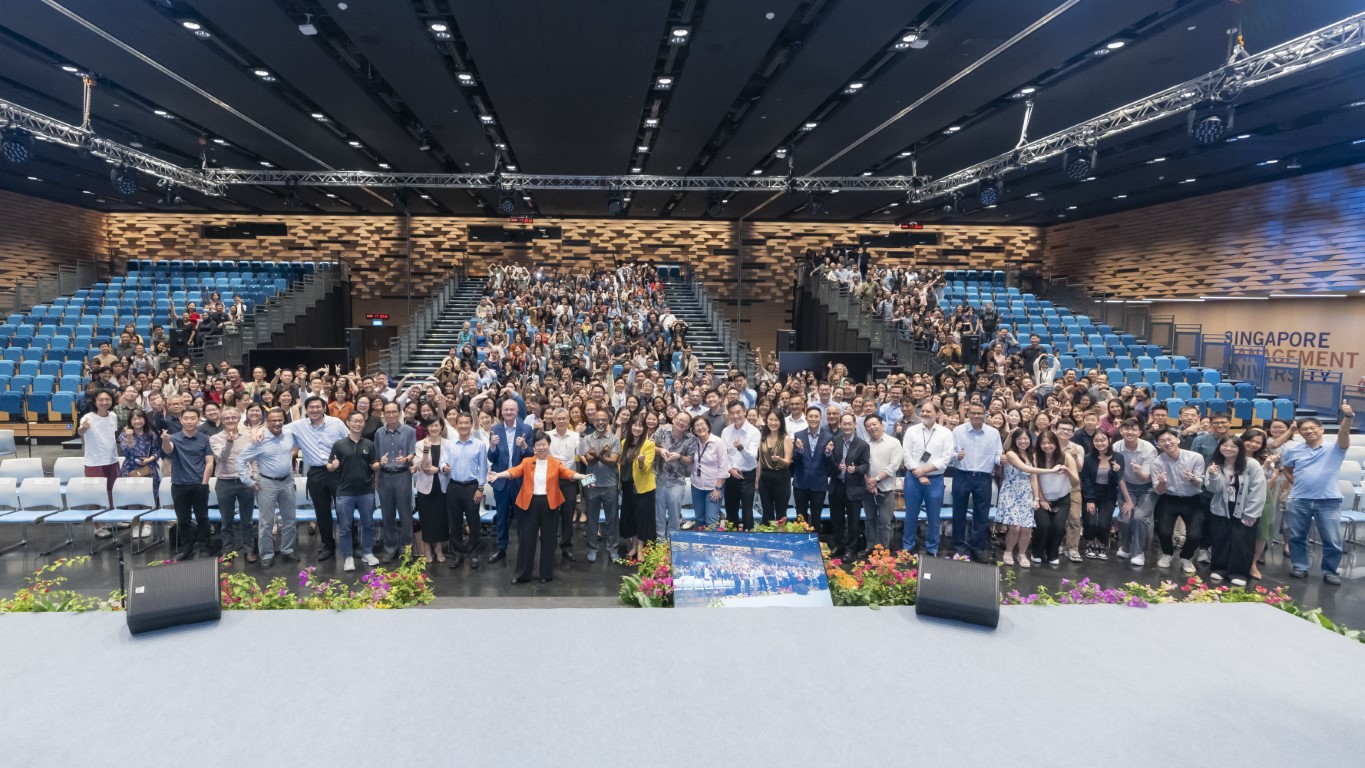
Prof Kong joined the audience in the hall for a wefie at the end of the Address.


